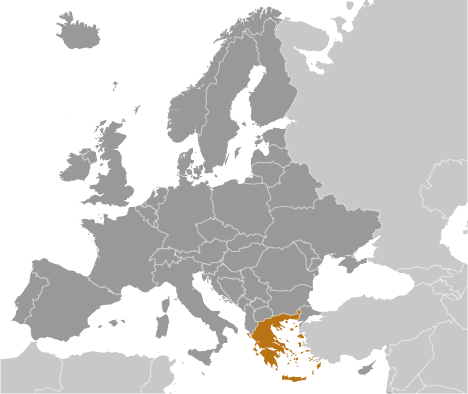HISTORICAL BACKGROUND
The Constitution was substantially amended in 2001 to provide for a more extensive right of access.(1) Article 5A states:
1. All persons are entitled to information, as specified by law. Restrictions to this right may be imposed by law only insofar as they are absolutely necessary and justified for reasons of national security, of combating crime or of protecting rights and interests of third parties.
2. All persons are entitled to participate in the Information Society. Facilitation of access to electronically handled information, as well as of the production, exchange and diffusion thereof constitutes an obligation of the State, always in observance of the guarantees of articles 9, 9A and 19.
In addition, Article 10, which gives a right of petition, now states:
3. The competent service or authority is obliged to reply to requests for information and for issuing documents, especially certificates, supporting documents and attestations within a set deadline not exceeding 60 days, as specified by law. In case this deadline elapses without action or in case of unlawful refusal, in addition to any other sanctions and consequences at law, special compensation is also paid to the applicant, as specified by law.
The right of access was first provided in a 1986 law that gave a right of access to administrative documents.(2) The right was read broadly by the Ombudsman and the Council of Ministers to give a right of access to all persons. In 1999, the Ombudsman ruled that the 1986 Act allowed access to all administrative documents "without there being any condition of legitimate interest on part of the applicant" referencing a 1993 Council of Ministers decision that a "reasonable interest" rather than a specific legal interest is an adequate reason.(3) In 1999, the law was supplanted by Article 5 of the Code of Administrative Procedure(4) which expanded the right of access. The Code provides that "interested persons" have a right to access administrative documents created by government agencies. In 2001, the Ombudsman affirmed that no interest is necessary for the 1999 law noting that following the adoption of the revised constitutional right of access and the 1999 that that "it is clearly the legislator's intent to expand and not restrict the application of the principle of transparency."(5)
The request must be in writing. Administrative documents are defined as "all documents produced by public authorities such as reports, studies, minutes, statistics, administrative circulars, responses opinions and decisions." In addition, the 1999 law allows persons with a "special legitimate interest" to obtain "private documents" relating to a case about them.
Documents relating to the personal life of an individual are not subject to the Act. Secrets defined by law, including those relating to national defense, public order and taxation cannot be released. Documents can also be restricted if they relate to discussions of the Council of Ministers or if they could substantially obstruct judicial, military or administrative investigations of criminal or administrative offenses.
Appeals are made internally. The Ombudsman can receive complaints on violations of the right of access and mediate or issue opinions.(6) The Ombudsman heard 22 cases in 2004 relating to violations of access to information.
A law to implement the EU Directive on the re-use and commercial exploitation of public sector information (2003/98/EC) was adopted in January 2006.(7)
The Law on the Protection of Individuals with regard to the Processing of Personal Data allows any person to obtain their personal information held by government departments or private entities.(8) It is enforced by the Hellenic Data Protection Authority.(9)
Greece signed the Aarhus Convention in June 1998 and ratified it in January 2006. A 1995 joint ministerial decree implemented the EU 90/313/EEC Directive after the European Commission started an infringement proceeding against Greece.(10) In July 2005, the European Commission announced that it was taking legal action against Greece and six other countries for failing to implement the 2003 EU Directive on access to environmental information.(11)
The Penal Code punishes the disclosure of state secrets. The Ombudsman has ruled in several cases that simply because a document is classified is not a ground for withholding it from access under the Code of Administrative Procedure. The files of the former military dictatorship were destroyed by the Socialist government in mid 1980s.
2004 freedominfo.org Global Survey Results - Greece
NOTES
Constitution of Greece. http://confinder.richmond.edu/greek_2001.html
Article 16 of Law 1599/1986.
Decision no. 1397/1993. See The Greek Ombudsman, Annual Report 1999 §§ 2.2, 3.22, 3.9.
Law No. 2690/1999 Ratification of the Administrative Procedure Code and other provisions.
See The Greek Ombudsman, Annual Report 2001 §3.1.1.
Ombudsman Homepage: http://www.synigoros.gr/en_index.htm
No 3448-2006. http://www.poeota.gr/_download/N.3448-2006.pdf
Law no. 2472 on the Protection of Individuals with regard to the Processing of Personal Data. http://www.dpa.gr/Documents/Eng/2472engl_all2.doc
Homepage: http://www.dpa.gr/
Joint Ministerial Decision 77921/1440 of 06/09/1995, Official Gazette 795 B' 14/9/1995 on the freedom of access of the citizens to the public authorities for information relating to the environment. See Hallo, Access to Environmental Information in Europe: Greece (Kluwer Law 1996).
European Commission, Public access to environmental information: Commission takes legal action against seven Member States, 11 July 2005.





















